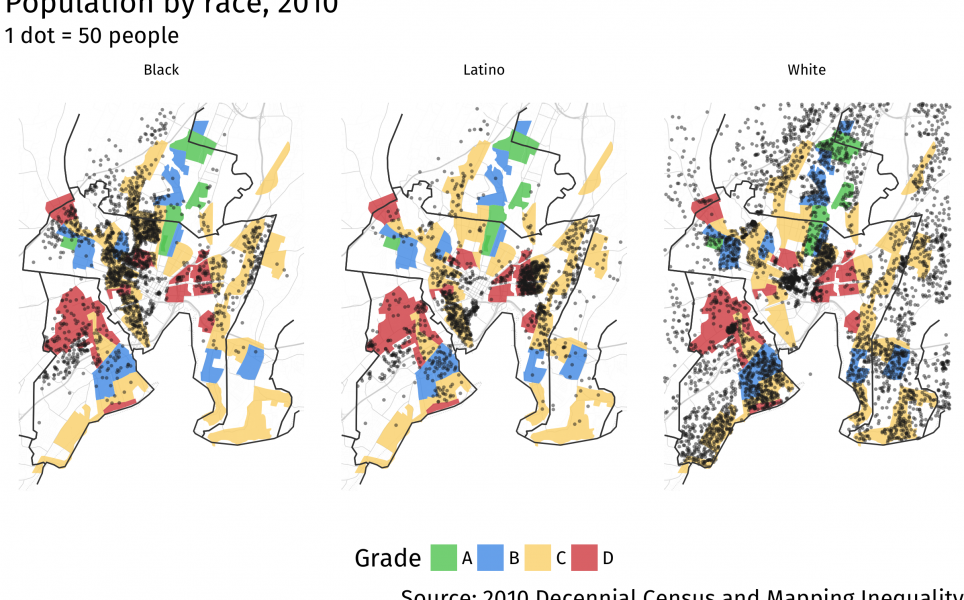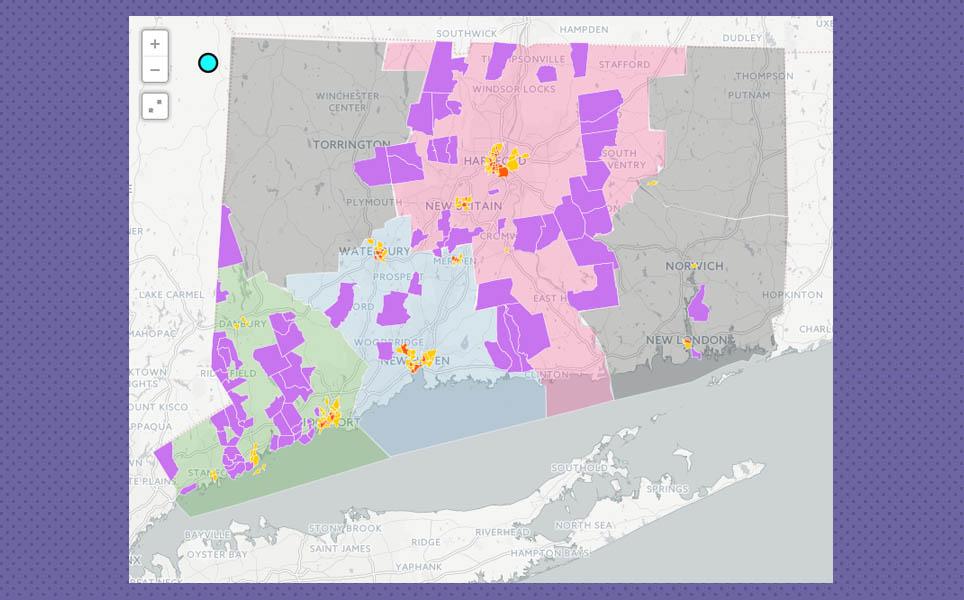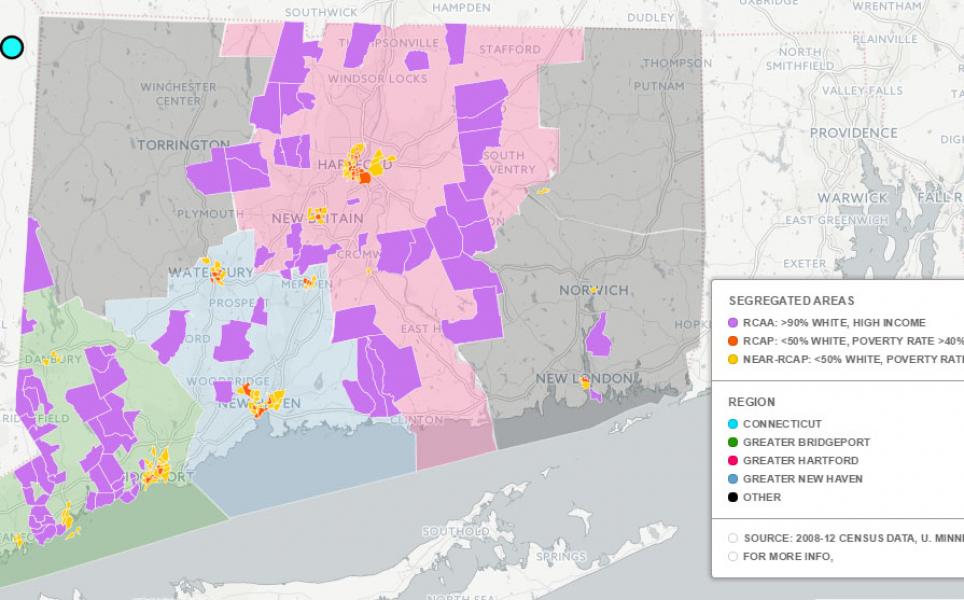[Excerpt] "Connecticut not only has the highest per capita income in the nation and ties New York in income disparity, its pockets of wealth and poverty are more highly concentrated than in many other large metropolitan areas. That was one of the findings of a study by Mark Abraham and Mary Buchanan, of DataHaven in New Haven, whose mission is to help policy-makers by compiling and interpreting public data.
The racially concentrated areas of affluence in the study were defined as at least 90 percent white with a median household income of at least four times the federal poverty level adjusted for cost of living.
Racially concentrated areas of poverty were census tracts where households where less than half of the population is white and at least 40 percent of the population has a household income below the poverty line.
Wealthy, mostly white neighborhoods are more common than poor, mostly minority neighborhoods, according to the study, but in Connecticut, the divide was starker.
In all of the Connecticut census tracts under review, there were twice as many segregated, affluent neighborhoods (80 census tracts), which represented 10 percent of the state’s population, as there weree segregated, very poor neighborhoods — 41 census tracts, for 3 percent of the state population.
The annual household income was $22,301 for the poor neighborhoods compared with $120,008 for the wealthy tracts, while for all Connecticut census tracts the average was $68,519, according to the study.
In these very poor neighborhoods, 16 percent of the residents were white; blacks represented 28 percent of the population in the poorest sections; Hispanics were 51 percent; while 5 percent were of other races.
In the wealthiest sections, 93 percent were white; 1 percent were black, 3 percent were Hispanic and 3 percent other.
Abraham and Buchanan found that poverty is increasing at a greater rate in the suburbs, but poor, racially concentrated neighborhoods are still more likely to be found in older cities, with the segregated wealthy in the suburbs."
Link:
http://www.nhregister.com/article/NH/20150704/NEWS/150709752








